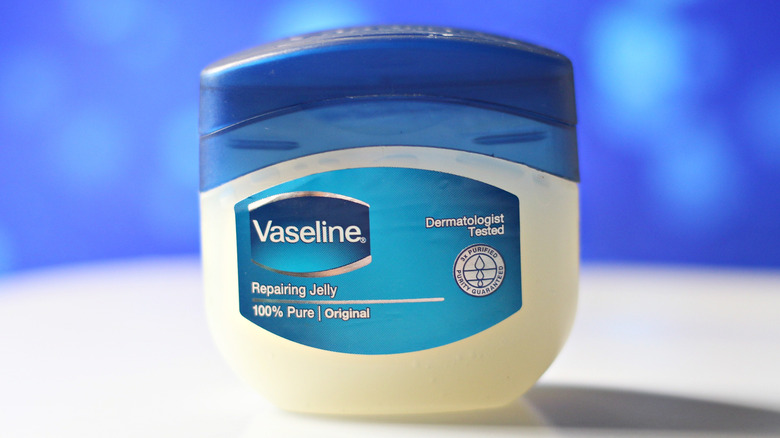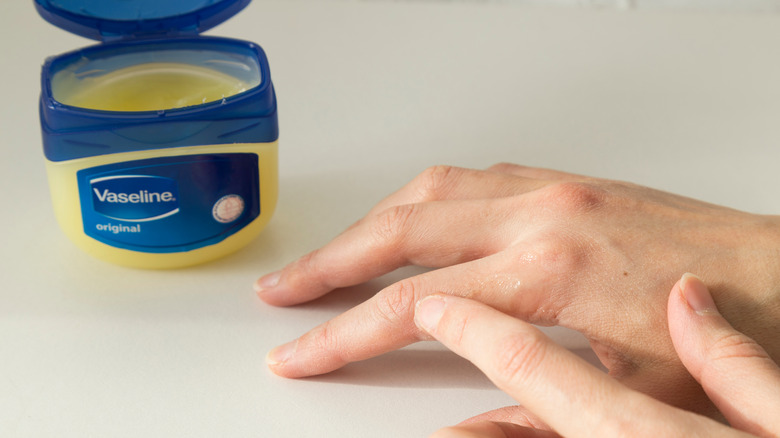Is Vaseline Actually A Good Way To Treat Eczema?
The experts at the Mayo Clinic define eczema, also known as atopic dermatitis, as "a condition that makes your skin red and itchy," adding that eczema is also "long lasting (chronic) and tends to flare periodically." While there is still no cure for eczema, they state that "treatments and self-care measures can relieve itching and prevent new outbreaks."
According to the experts at Healthline, a petroleum jelly product — such as Vaseline — is one of those good self-care measures that you can use to treat eczema. This is because Vaseline and similar petroleum jelly products are a thick, protective way to hydrate and moisturize itchy, flaky and even inflamed skin. Vaseline is also hypoallergenic — meaning it is unlikely to cause an allergic reaction. It also works to strengthen your skin while allowing the eczema to heal and prevent further symptoms.
To maximize the benefits of Vaseline when managing eczema, apply it following a hot bath or shower while the skin is still damp — with or without additional moisturizers. Before applying Vaseline, however, it is advised that you "do a skin patch test to check for adverse reactions" (via Healthline).
Other good ways to treat eczema
While experts stand behind petroleum jellies, such as Vaseline, as a way to manage eczema flare-ups, it is important to remember to protect eczema-prone skin prior to flare-ups occurring. "Managing atopic dermatitis requires a mutli-facted approach," Margaret Lee, M.D., Ph.D., an instructor in dermatology at Harvard Medical School and pediatric dermatologist at Boston Children's Hospital, tells National Eczema Association. If you are someone who is prone to eczema, Dr. Lee suggests that you look at managing your skin as if it were "a three-legged stool that simultaneously requires attention toward limiting bacteria, causes of inflammation, and itching/scratching."
As far as treatments for flare-ups, Dr. Lee recommends vegetable shortening because it helps to seal in water in a similar way to expensive ointments. She cautions, however, to make sure you are not allergic to the vegetables in the oil if you have food allergies. For those who want to avoid any potential impurities in petroleum jellies or their environmental impacts, Dr. Lee suggests looking for products that "bill themselves as being 'organic' and 'all natural.'" However, she again advises to check all ingredients if you have allergies and to also be prepared to spend more money on these products compared to options such as Vaseline.
At the end of the day, everyone's body is different and may require different approaches. "If you've taken action to help provide relief, believing in it and giving it time to work can sometimes quell the compulsion to scratch. There is no 'one answer.' You've got to find what works for you," Dr. Lee says.


